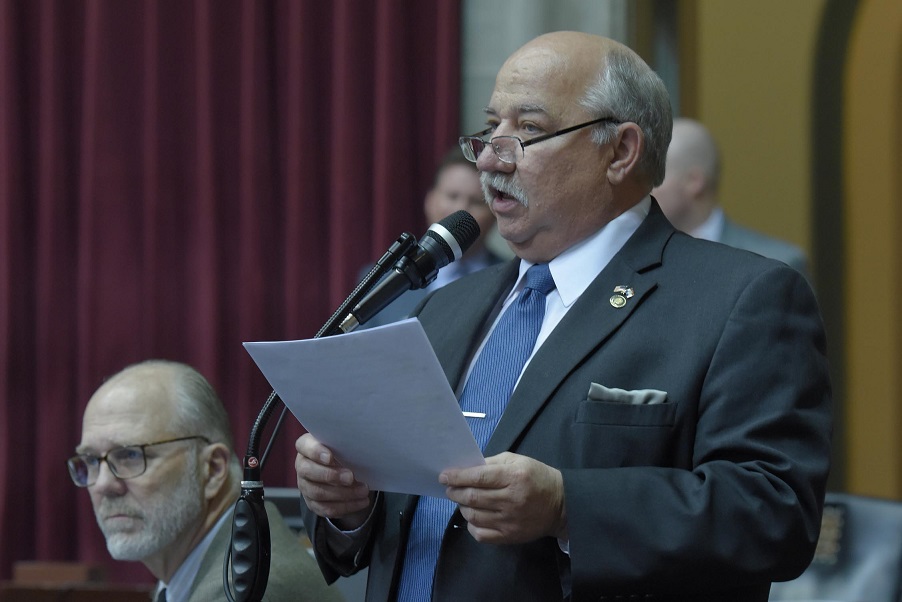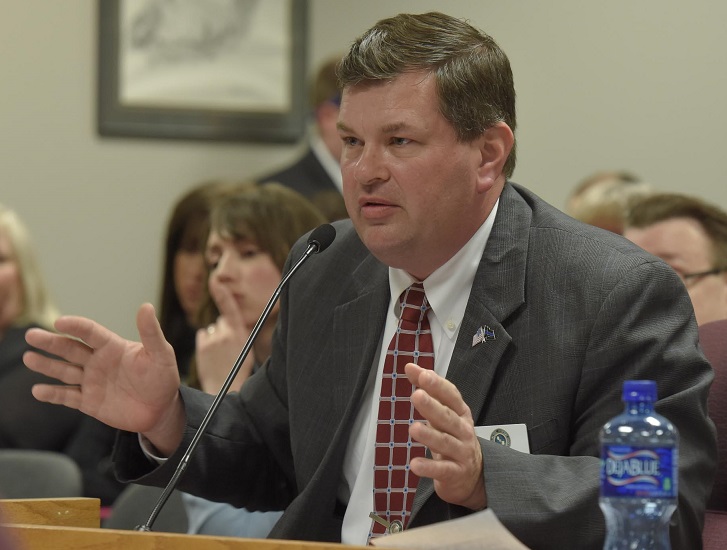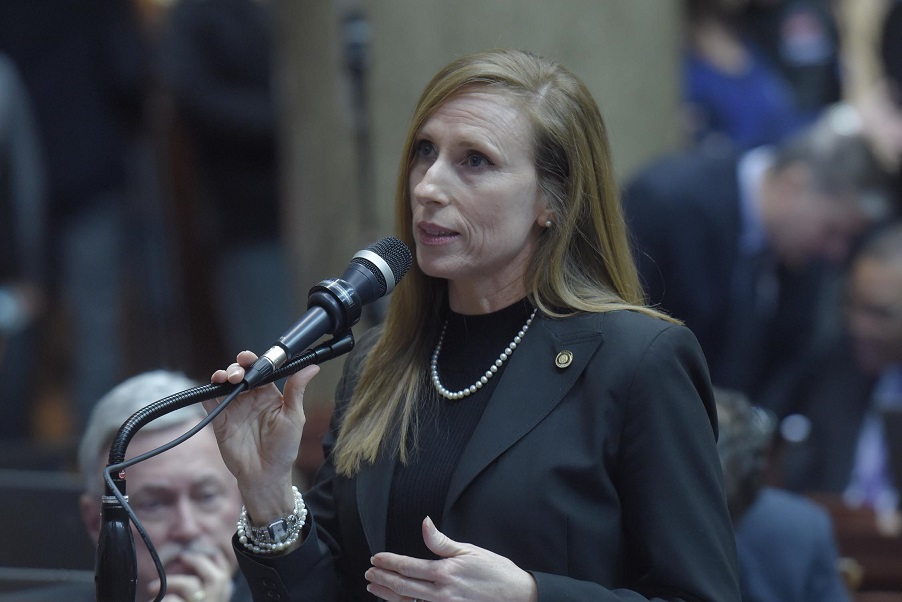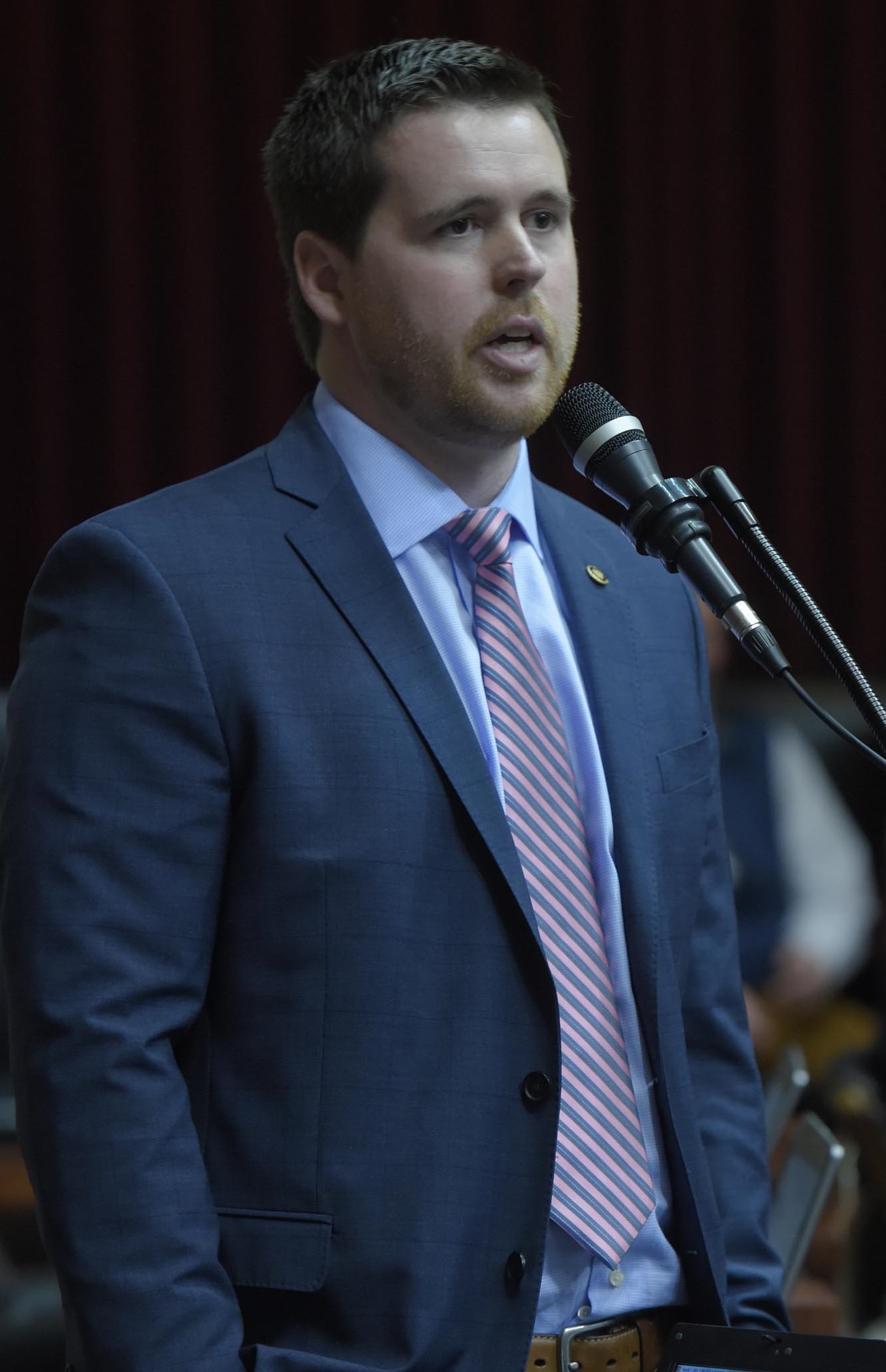A top Department of Corrections official has told a House subcommittee poor training, bureaucracy, and the Department’s growth have contributed to problems with harassment and retaliation among Missouri prison employees.

Dave Dormire is the Department’s Director of Adult Institutions and has been in the Department more than 40 years. He has announced he will retire April 1.
He talked to the House Subcommittee on Corrections Workforce Environment and Conduct after it had heard testimony from several other department officials, employees, and former employees.
The subcommittee was formed after news articles shed light on cases in which Department employees alleged they’d been harassed and, in some cases, retaliated against. Several of those cases have gone to court, and several of those resulted in settlements costing the state millions of dollars.
Since September, 2011, Dormire has been responsible for some staff appointments, overseeing the safety of staff and inmates, and for disciplinary decisions.
Dormire was asked why some of the people who had been involved in those incidents still work for the Department. He told lawmakers some allegations go unsustained, and some efforts are made to correct employees rather than fire them after a first incident.

Dormire told subcommittee member John McCaherty (R-High Ridge) the Department has not tolerated its employees committing harassment or unprofessional behavior repeatedly.
“I understand your opinion, sir. Obviously when I have my records to show what we’ve done and how we’ve addressed things,” Dormire said.
“And we have court cases to show the other side of it,” said McCaherty.
Dormire said the Corrections Department has grown to eight times the size it was when he started there, to more than 32-thousand inmates and roughly 8,000 staff throughout the prison system.
Subcommittee members told Dormire it has been reviewing reports of harassment and retaliation that date back as much as 20 years.
“It looked like our employees would’ve been better off behind bars,” said Chairman Jim Hansen (R-Frankford). “They would’ve been safer there than they would from some of their supervisors, and it’s disturbing.”
Committee members also asked Dormire about reports they’ve heard of nepotism in the Department’s hiring and promotion practices. At an earlier hearing, they heard from a former employee that wardens often ignore the recommendations of panels assigned to recommend employees for promotion. The system was described as one of “good ol’boys” hiring and promoting friends and relatives.
Dormire told lawmakers the Department used the state’s Merit system, created in state law to prevent favoritism, political influence, or arbitrary decisions in hiring and other employment decisions.

Representative Kathie Conway (R-St. Charles), who said she has heard of, “so much nepotism,” in the department, challenged Dormire on that claim.
“We have to use the Merit system,” said Dormire.
“You have to not sexually harass people, too, but that didn’t seem to be the case,” said Conway.
Committee members asked Dormire about allegations raised by recent articles by Pitch.com suggesting that he had been involved in retaliation against employees, and had been deceptive in his answers in some investigations. Dormire denied those allegations.
Asked specifically whether he testified that disciplining two guards accused of harassing two nurses would have been “moot” because the nurses had quit, Dormire said, “I don’t remember making that statement in particular. I don’t normally use that word. It’s possible. I don’t remember that.”
Committee members again indicated they are looking to those at or near the top of the Corrections Department’s hierarchy – wardens and administrative officials – as being largely at fault.
Hansen said of the cases of harassment he’s read about wardens seemed to be involved in some, and “totally incompetent,” in others.
“I think you’ve got good wardens,” Dormire told Hansen. “Some of them need some help.”
“They need help? We don’t have time. This is costing the state taxpayers millions of dollars,” Hansen responded. “We got people who are supposed to be head of the parade that are playing out of tune and out of step with the marching band.”
Representative Bruce Franks (D-St. Louis City) said he feels the committee still isn’t being told who it must talk to, to get to the nucleus of issues in the Department.
“We talked about the culture, we passed the buck today two or three times, we said we can blame the culture, we can blame the growth, we can blame all of these different things, except for blaming ourselves – the people who are actually in charge,” said Franks. “We have a lot of people up top who aren’t held accountable and who aren’t holding those right up under them accountable, who make 90-thousand, 50-thousand, 100-thousand, 85-thousand, so maybe we need to take about seven or eight of these particular jobs out and distribute their salaries to those who are making nothing to do most of the work.”









